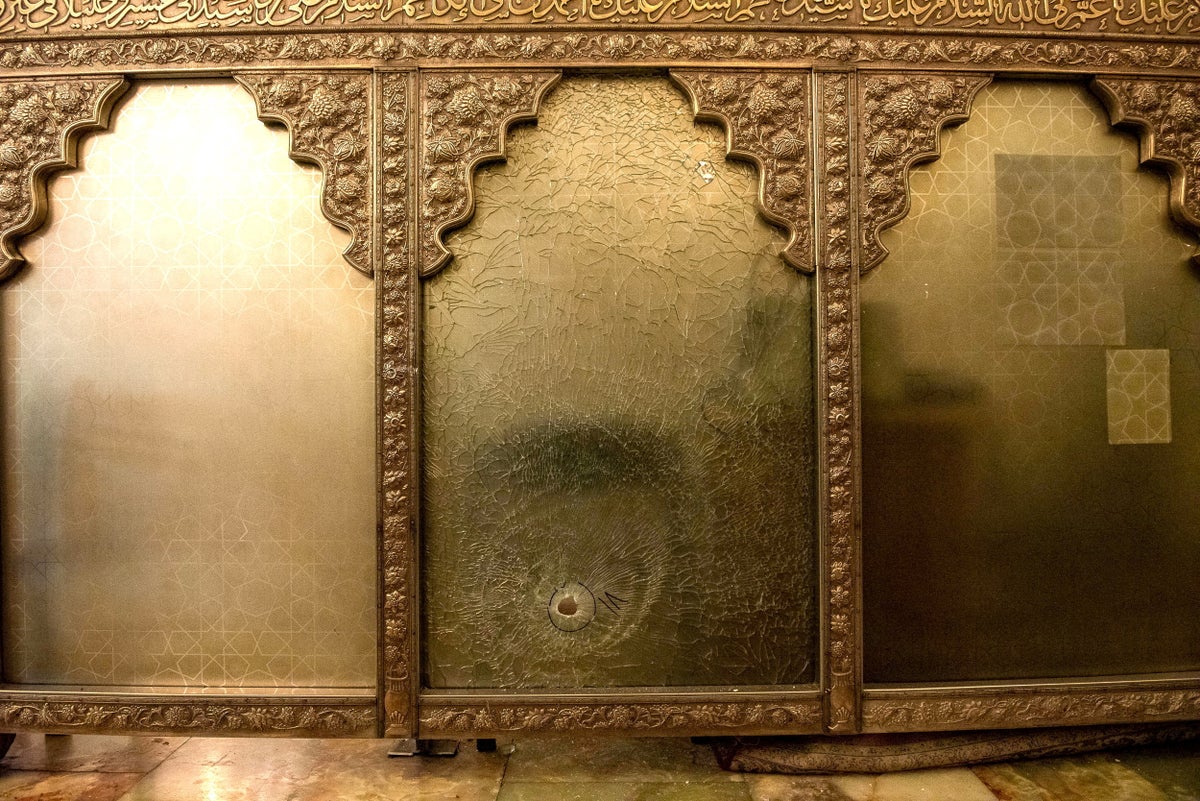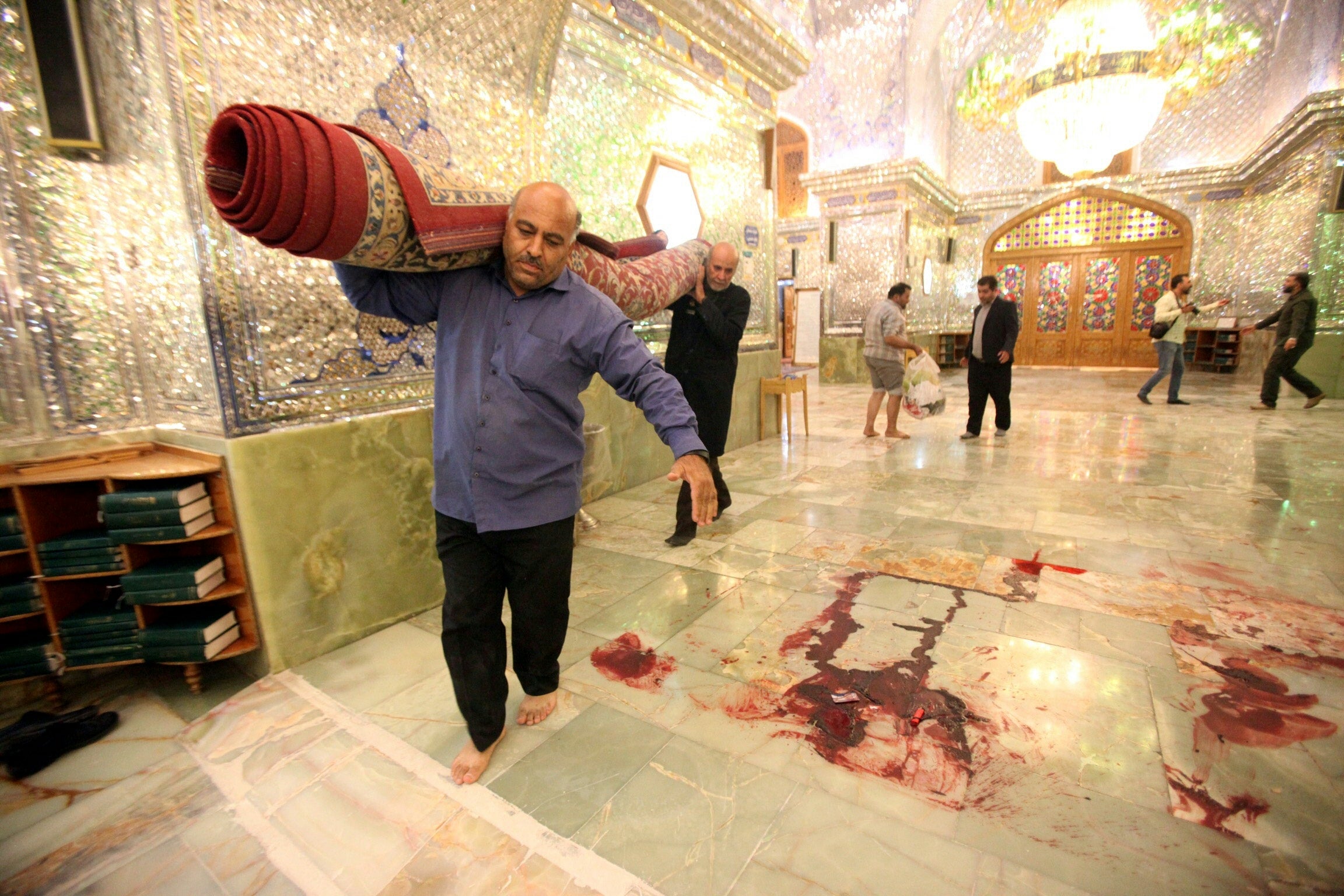
Iran has vowed that an attack on a Shia shrine will not go “unanswered” as protests continued to sweep the country over the death of Mahsa Amini.
“We will certainly not allow Iran’s national security and interests to be toyed with by terrorists and foreign meddlers who claim to defend human rights,” foreign minister Hossein Amirabdollahian said in a statement on Thursday carried by state media.
Fifteen people were killed in the central Iranian city of Shiraz at the Shah Cheragh shrine a day earlier.
Officials said the gunman who carried out the attack has been arrested.
According to state media, “takfiri terrorists” — a term used by Iran for hardline Sunni Muslim militants like Isis — were behind the attack.
“This crime made the sinister intentions of the promoters of terror and violence in Iran completely clear. There is reliable information that the enemies have drawn up a multi-layered project to make Iran insecure,” Mr Amirabdollahian said.
The attack on the shrine coincided with the 40th day of mourning for 22-year-old Amini, who died on 16 September, something seized on by the country’s officials.
Interior minister Ahmad Vahidi blamed widespread protests for paving the ground for the Shiraz attack, state media reported.

President Ebrahim Raisi also said in a statement that Iran would duly respond to the attack.
As demonstrators sweep the streets of Iran, including in Amini’s hometown of Saqez, security forces opened fire on them at some areas, reports said.
Human rights group Hengaw said two men had been shot dead by police in Sanandaj, Kurdistan province’s capital, and the northwestern city of Mahabad on Wednesday.
According to state media, a Revolutionary Guards member and a Bassij militiaman were allegedly shot dead by unidentified gunmen on Tuesday in Zahedan, capital of the restive Sistan-Baluchistan province which has been a hotbed of protests by Iran’s Baluch minority.
They are to be buried on Thursday.
Ongoing protests against Amini’s death have become one of the biggest challenges to Iran’s leadership since the 1979 revolution that established clerical rule in the country.
Additional reporting by agencies







